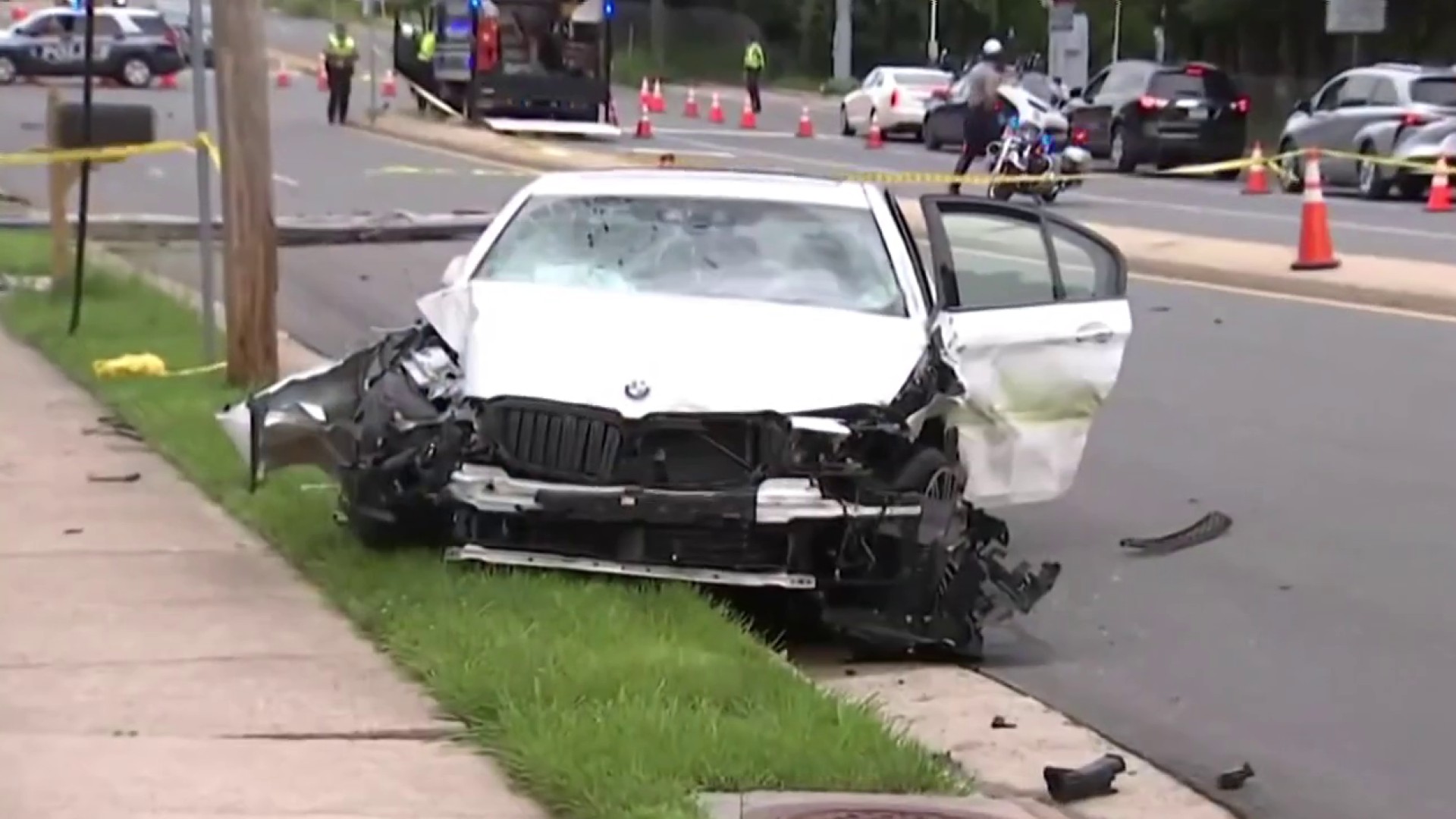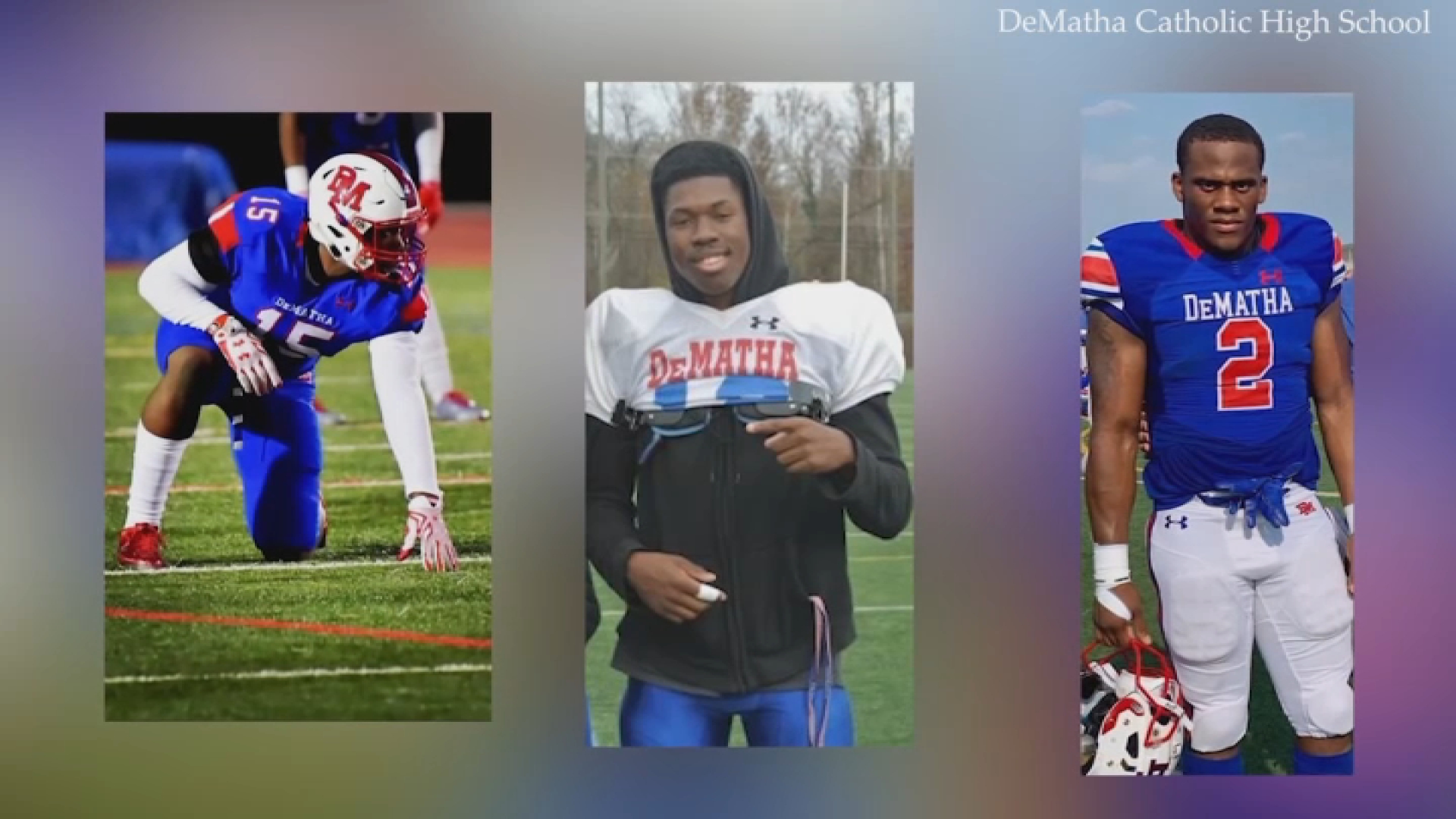Maryland's Department of Health announced Thursday it will partner with 13 hospitals around the state to launch an antibody study on unused blood samples. It's part of a new program to incorporate antibody testing into the state’s continued strategy to fight COVID-19.
The News4 I-Team first asked about that strategy in May, when Virginia began posting its antibody testing details online, with positive and negative results listed by local health district. In mid-July, Maryland provided the I-Team with data showing more than 81,000 Marylanders had been antibody tested through private vendors.
"I think we might be, ya know, too cautious,” said Maryland Del. Lily Qi, who represents Montgomery County, adding that there’s really no such thing as perfection when it comes to medicine.
We're making it easier for you to find stories that matter with our new newsletter — The 4Front. Sign up here and get news that is important for you to your inbox.
Qi is one of a half dozen Maryland legislators who recently sent the governor a letter pushing for widespread antibody testing and public disclosure of the results. She'd also like to see the state and local governments harness advancements in medical and biotechnology research companies throughout Montgomery County.
"I think this is our time. This is our opportunity. We really should have taken advantage of it more aggressively," said Qi.
Local
Washington, D.C., Maryland and Virginia local news, events and information
One example is Rockville-based 20/20 Gene Systems, which has won awards for its use of antibodies to detect proteins for other antibodies. The cutting-edge research uses an immune assay analyzer for blood tests in the early detection of cancer
"We were dramatically able to improve the accuracy of the cancer tests with machine learning algorithms,” said President and CEO Jonathan Cohen. “We are now seeking to take the same approach with COVID-19 antibody tests."
Coronavirus Cases in DC, Maryland and Virginia
COVID-19 cases by population in D.C. and by county in Maryland and Virginia
Source: DC, MD and VA Health Departments
Credit: Anisa Holmes / NBC Washington
Cohen wants to collect very specific information from hundreds of thousands of people with COVID antibodies. The computer will use machine learning algorithm to look for patterns, basically combinations of risk factors and demographics that make someone more susceptible to the virus. Their names remain anonymous. But the research could help shape future knowledge about COVID-19 risk factors.
"We will be able to give people a score that identifies their likelihood of re-infection," Cohen said.
He started talks with Montgomery County's health department months ago, hoping to add antibody testing at one of its drive-up test sites. But he’s still awaiting approval.
"We're continuing those conversations and discussions, and part of that is it's very fluid," said Dr. Travis Gayles, Montgomery County’s health officer.
Gayles said his first priority must be testing people with current COVID-19 infections, but he's open to the idea of adding antibody testing to the county strategy.
"I wouldn't say we are drastically behind the curve in terms of that," said Gayles, adding that there are lots of logistics to consider in standing up an antibody testing pilot program.
"If there are meaningful opportunities to be able to participate in those exercises, to get up-to-date data and to push the envelope in terms of innovation, certainly we do actively look for those opportunities," Gayles said.
In the meantime, Cohen is working to build relationships with counties, states and countries around the globe.
"There's a lot of people sort of throwing their hands up. We're trying to take a step toward answering those questions with our approach," said Cohen.
Dr. Ernest Brown is a traveling physician who makes house calls throughout D.C., Maryland and Virginia. Lately he makes office calls too, performing COVID-19 and antibody testing not just on individuals, but groups of employees hoping to return safely to work.
"We've had numerous businesses, wide range. We've had embassies and we've had other governmental agencies, too," Brown said.
The trouble is most antibody tests, even when accurate, still don't tell public health officials all of what they need to know. For example, those being tested by private labs are not generally even asked whether they’ve previously had COVID-19 symptoms, a prior positive test or any underlying health factors.
"We need large data for this to really understand the impact but also to get ahead of what this infection will be in the winter," said Brown.
Brown said he would encourage all of his antibody-positive patients to add their data to Cohen’s study to help inform future research.
Maryland’s Department of Health says it plans to launch its own antibody testing system this summer, beginning with first responders and hospital emergency departments. Records provided to the I-Team show less than 1% of the antibody test results the state has received from private labs have come back positive.
An MDH spokesperson refused to release demographic or geographic information the I-Team requested about who was antibody tested or even which kinds of tests were used. The state said the information was maintained in a system that also contains confidential information.
Brown said he has performed more than 2,000 COVID tests and 500 antibody tests so far.
"The more data we can collect now, the more we will understand this better and make the right decisions about testing and planning," Brown said.
Reported by Jodie Fleischer, produced by Rick Yarborough, and shot and edited by Steve Jones and Jeff Piper.



